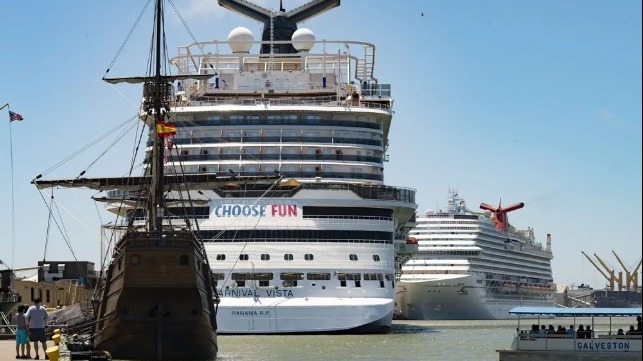Texas Seeks to Join Florida’s Lawsuit to Overturn CDC Cruise Order

Texas is taking steps to join Florida’s lawsuit against the U.S. Centers for Disease Control and Prevention (CDC) that seeks to invalidate the Conditional Sailing Order and clear the way for the immediate and unrestricted resumption of cruises from U.S. ports. In a filing before the U.S. District Court in Tampa, Florida, Texas argues that it too has been substantial harmed by the actions of the CDC and that Florida will not fully represent Texas’s interest in the case. Previously, Alaska had also sought to join the legal case with a similar argument.
At the beginning of April 2021, Florida filed suit against the Biden Administration and the CDC in federal district court saying that the CDC’s actions were “unlawful” and had “directly harmed the State of Florida, its citizens, and their families, resulting in the loss of billions of dollars in economic activity.” According to the lawsuit, the CDC’s Conditional Sailing Order harms Florida and its citizens by preventing numerous businesses and employees from earning a living and contributing to the state’s unemployment. They also said that by blocking the cruise industry the order is contributing to the massive shortfalls in revenues experienced by the state’s seaports and reducing state and local tax revenues.
“Although the interests of Texas and Florida are closely aligned, they are not identical,” Texas says in its filing which seeks to “intervene” in the case. A technical process under the law, intervention permits a non-party to the case to join the suit at the permission of the court to directly represent its interest in the matter.
Texas points to the growth of its role in the cruise industry highlighting that the Port of Galveston accounted for nearly eight percent of U.S. cruise embarkations before the pandemic. Cruise visitor spending in Texas exceeded an estimated $65 million they say and cruise ships accounted for 47 percent of the Port of Galveston’s revenue in 2019. “This volume of traffic also helped keep pilots, tugs, and longshoremen operational and employed.”
Seeking to demonstrate harm from the CSO, Texas reports that the CDC’s actions have already cost the state $1.2 billion in direct spending as well as 23,000 jobs, and $1.6 billion in lost wages. They say the impact is broader, including the lost revenues for hotels, restaurants, and other businesses, and contributing to an $816 million decline in sales tax collected by the State of Texas in 2020.
In addition to highlighting the decline in infection rates and the increasing availability of vaccines, Texas points to the medical facilities located one mile from the port. They contend that Galveston and the state are prepared to deal with any medical situation that might arise from an infection aboard a cruise ship.
“Texas has a significant stake in the outcome of this litigation,” the motion says detailing how the CDC order “impacts Texas differently than Florida. Therefore, the court should allow Texas to intervene.”
Texas’ filing was completed before the release by the CDC of its updated technical guidance detailing the steps the cruise lines need to take to resume service and the restrictions and protocols that will be required on cruises sailing from U.S. ports. While the CDC anticipates that cruises will resume possibly by mid-July, the CSO remains in effect until November 2021, and the limitations it imposes could be revised or extended if the CDC deems additional actions are necessary based on the evolution of the pandemic.
